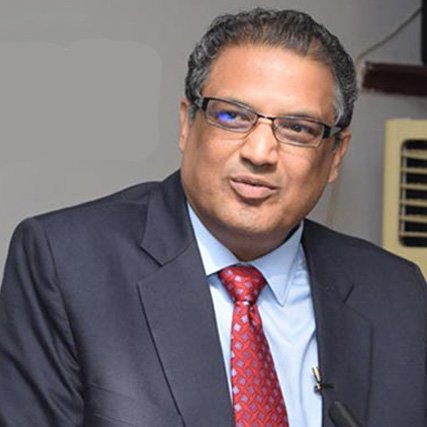Silence is the prelude to a storm. After the withdrawal of American troops, Pakistan had become irrelevant internationally. American think tanks believed that Pakistan was beyond reform and should be left to its own devices. The only cure for this was that it should remain in an oxygen tent, neither living nor dead, just breathing. The rope of the economy should be tightened so that it would repent of its nuclear and jihadist policies. General Bajwa had spent time in the Western world, so he slowed down the pace of the pro-China policy that had angered the Western world during his tenure. Before General Bajwa came, Pakistan was rapidly moving towards the Chinese camp and America believed that it was going to become a Chinese colony or satellite like Burma. Therefore, during the Bajwa-Imran era, American reservations were removed, attention and priority on CPEC was removed and relations with America improved, but America refrained from providing any kind of aid to Pakistan. During this time, Pakistan remained silent, isolated and indifferent. It was being guessed that how could the most active country on the world map for decades suddenly remain cold? The owner of the central role in the two world wars in Afghanistan cannot remain silent for long. The opportunity was waiting and it seems that Pakistan has started to rise again in the new global environment, but for 75 years we have been mercenaries in the American camp and have been reaping its benefits, but now we are flexing our arm muscles. Bilawal Bhutto’s narrative, “Imran is an excuse, the nuclear program is the real target” is actually indicating a new change. If President Trump’s administration puts pressure, Pakistan will also respond defiantly.
Bilawal Bhutto is considered a bright young man among the youth of the time. With foreign education, family training and political traditions, he has also gained experience as a foreign minister. As foreign minister, he has created fans among the Saudis, Americans and diplomats of many countries, only the Israeli and Indian foreign ministries were angry with him. Despite his minor differences with the Pakistani authorities, he is generally skilled in presenting the state narrative internationally. That is why I think that Bilawal Bhutto’s response to America on the anniversary of Ms. Benazir Bhutto can be a state narrative. The whole of Pakistan will have to be prepared for how this changing narrative will affect Pakistan.
Yesterday, for the first time since the February 8 elections, a big political event was held in a five-star hotel in Lahore. The largest hall of the hotel was packed. The occasion was the annual death anniversary of Khawaja Saad Rafique and Salman Rafique’s father, Khawaja Rafique. But it became a political festival in which the non-Nawaz position regarding negotiations came to the fore. Including me, Mujeeb-ur-Rehman Shami Sahib, Rana Sanaullah Sahib and Mr. Ayaz Sadiq Sahib, everyone spoke about reconciliation, understanding and future prospects. The most interesting and enjoyable speech was that of Defense Minister Khawaja Asif. He explained the internal position of the Non-Nawaz League in a dramatic manner like the Roman orator Cicero. He kept asking the audience repeatedly that till November 26, the PTI wanted to bring revolution and did not even want to talk to us. Why is it now ready for negotiations? Like an expert orator, he kept asking the audience repeatedly that what has happened in the last fifteen days? One of the audience said in response, “Danda.” So Khawaja Sahib immediately replied that I don’t understand this, this is your opinion. Despite repeated questions, Khawaja Asif himself did not tell the audience what had happened in the past fifteen days. However, in the end, he clarified his thinking by revealing that he had neither been consulted on the negotiations nor had he been included in the negotiation committee. Then, smiling, he said, “Let’s see if there is any trick in their negotiations. Be careful not to fall for their trick.” It became clear from Khawaja Asif’s speech that “Noon” is very cautious and she believes that the PTI negotiations are an excuse. In fact, now she wants to take our place by conspiring. PTI is holding talks to prove itself to the outside world as a political party and to give the impression that we are ready for talks despite pressure and violence. On the other hand, there is an impression in Noon that the PTI chief must be punished by a military court for the incidents of May 9 and November 26. Khawaja Saad Rafique and Rana Sanaullah were of the opinion that if serious talks are to be held, Nawaz Sharif, Zardari, Fazlur Rehman and Imran Khan should be in power and the judiciary should also be a part of these talks.
Bilawal’s anti-American narrative and Khawaja Saad Rafique’s statement may seem to have nothing in common, but in reality, these two will be the two most important issues facing Pakistan in the coming year. If America puts pressure, will Pakistan bow down to Trump and make concessions to Imran or will it stand firm? Bilawal’s narrative is showing that the state can stand firm in the face of pressure, while the conference held in memory of Khawaja Rafique shows that the wounds of the fight between the PTI and the PTI have not yet healed. Until these wounds are healed, until an apology is sought and apologies are made to each other, no major outcome is possible from the talks.
Currently, the ruling party is praising Prime Minister Shehbaz Sharif for his hard work day and night and working in the most difficult conditions, and he is being given confidence that after the economic situation improves, he can also bring improvements in politics. At present, Khan is unlikely to get any concessions from the ruling party. Even if he gets concessions, they will be on the strict condition of complete silence and acceptance of the current system. Bilawal’s narrative will be popular, but there are many risks in it. Fighting and opposing a superpower can be very costly. A weak economy and internal political, religious and regional conflicts are very big problems for Pakistan. If there is a major conflict, it will be difficult to handle Pakistan’s fault lines. It would be appropriate to use internal reconciliation and external dialogue as a means to get out of the problem.
 Colors
Colors  View Books
View Books 



